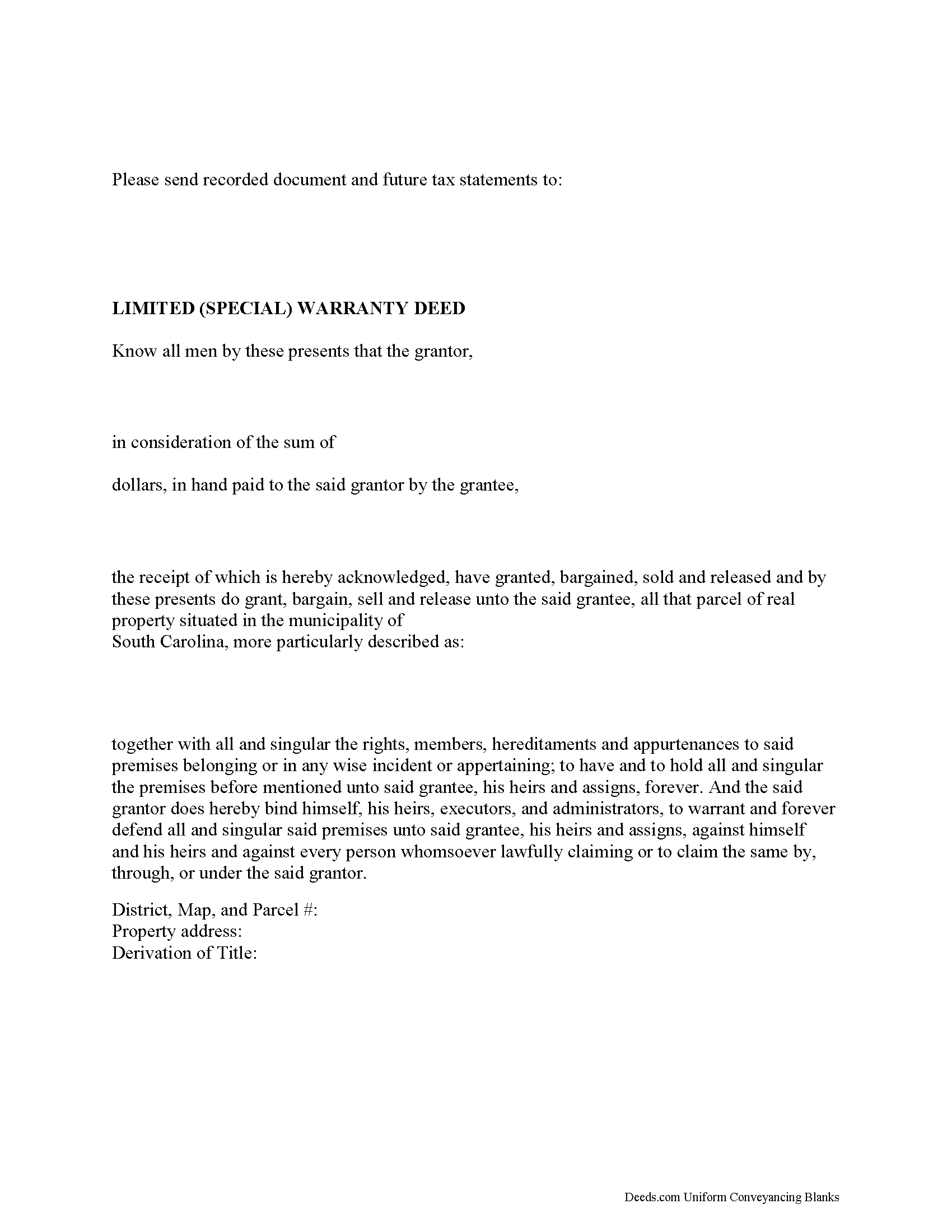Download South Carolina Special Warranty Deed Legal Forms

South Carolina Special Warranty Deed Overview

A limited warranty deed can be used to transfer title to real estate in South Carolina. A limited warranty deed may also be called a special warranty deed. This type of deed is commonly used in commercial real estate transactions in this state. A conveyance of real estate in South Carolina will pass the entire interest of the grantor in the property described to the grantee, unless a different intention is clearly expressed in the deed (27-5-130). A statutory form for a conveyance of real property in fee simple is presented in 27-7-10 of the South Carolina General Code. This form can be used for a limited warranty deed, as section 27-7-20 of the South Carolina General Code provides that the statutory form does not force anyone to insert the clause of warranty and also does not prevent a person from inserting any other clause. In a limited warranty deed, the grantor will warrant and defend the title to the property to the grantee, the grantee's heirs, successors, and assigns against the said grantor and his successors and assigns.
A limited warranty deed must be signed and acknowledged or proved in accordance with South Carolina law in order for the deed to be recorded with the register of deeds. Two witnesses are required for a limited warranty deed in this state, one of whom may be the notary public. Proof of a limited warranty deed can be evidenced by the affidavit of a subscribing witness to the instrument, taken before an officer in the state authorized to administer oaths (30-5-30A). Alternatively, the deed can be acknowledged by the grantor. The signing must be acknowledged by the grantor in the presence of two witnesses, taken before an officer in the state competent to administer oaths. Acknowledgments can also be taken out of state before any of the officers listed in 30-5-30B. A limited warranty deed is required to contain a derivation clause (30-5-35).
From the time a limited warranty deed is recorded in the register of deeds office in the county where the property is located, it will be valid so as to affect the rights of subsequent creditors or purchasers for valuable consideration without notice. Until the limited warranty deed is signed, acknowledged or proved, and recorded, it will not be valid against third parties. In the case of a subsequent purchaser or a subsequent lien creditor on real estate for valuable consideration without notice, the instrument evidencing the subsequent conveyance or lien must be filed for record in order for its holder to claim under this section of the law as a subsequent creditor or purchaser for value without notice. The priority of instruments is determined by the time they are filed for record (30-7-10). The proper recording of documents establishes a priority of claims against a specific property.
(South Carolina SWD Package includes form, guidelines, and completed example)